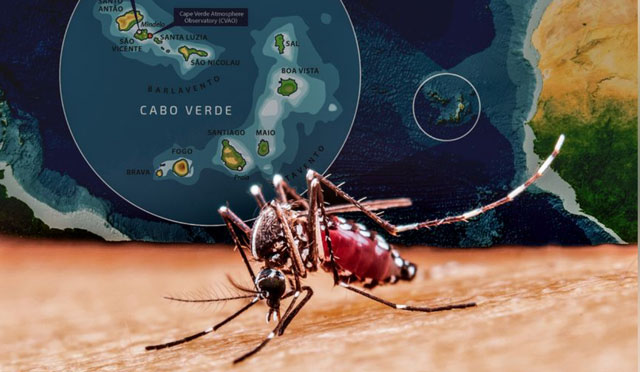
Cabo Verde has achieved a WHO-certified malaria-free status, showcasing the power of strategic health planning. The achievement inspires African nations as more countries pursue malaria elimination.
SPECIAL REPORT | BIRD AGENCY | Cabo Verde has achieved a significant milestone in the battle against malaria, securing malaria-free certification from the World Health Organization (WHO).
In news released on Friday, January 12, WHO explained that indigenous malaria transmission by Anopheles mosquitoes across the archipelago of 10 islands has been halted nationwide for the past three consecutive years.
The country’s certification is the fourth on the continent, following Mauritius, Morocco, and Algeria in 1973, 2010, and 2019, respectively. Globally, 43 countries now hold malaria-free certifications.
According to Tedros Adhanom Ghebreyesus, WHO’s Director-General, “WHO’s certification of Cabo Verde as malaria-free is a testament to the power of strategic public health planning, collaboration, and sustained effort to protect and promote health.”
A December 2023 World Malaria Report by Aidspan revealed that low-income countries and small island developing states bear the most severe impacts of malaria, with mortality rates 15 times higher than in less vulnerable regions.
Philip Welkhoff, Director of the Malaria Program at the Bill & Melinda Gates Foundation, sees Cabo Verde as an example for other African countries. The African region is the most burdened with malaria, with approximately 95% of global malaria cases and 96% of related deaths in 2021, according to the WHO.
“Cabo Verde has proven that with the right tools, improved case management and surveillance, political leadership, multisectoral engagement, and sustained investment, countries in Africa can achieve dramatic progress against malaria—and even eliminate it,” Welkhoff stated.
Malaria elimination became part of Cabo Verde’s national health policy in 2007. This led to a national malaria strategic plan between 2009 and 2013, extending diagnosis and ensuring early and effective treatment, with increased reporting and investigation of cases.
“In 2017, the country turned an outbreak into an opportunity. Cabo Verde identified problems and made improvements, leading to zero indigenous cases for three consecutive years,” reported the WHO.
The malaria-free certification can unlock broader socio-economic opportunities for Cabo Verde. Strengthened health systems and structures around malaria elimination will not only enhance the country’s health but also boost tourism, which accounts for approximately 25% of its GDP, as travellers from non-malaria-endemic regions gain confidence in visiting Cabo Verde.
As more African countries join the race to eliminate malaria, strategic plans are being implemented to yield positive results.
The Citizen reports that Tanzania, through the National Malaria Control Program, targets incorporating malaria control into primary healthcare, incorporating malaria control as part of the primary healthcare approach and not as a separate vertical activity. Last year, President Samia announced a 19-member End Malaria Council.
Initiatives like the Tanzania Malaria Case Management Program, in partnership with USAID, also showcase the commitment to this goal.
The southern African region is also seeing progress, with South Africa having made considerable strides in malaria control. According to Ministry of Health data, transmission in the Rainbow Nation has been pushed to the border level with only a few areas, such as Limpopo, Mpumalanga, and KwaZulu-Natal, remaining malaria endemic.
WHO reported that Botswana, Comoros, Eswatini, South Africa, and Sao Tome and Principe are approaching malaria elimination and are on the E-2025 Initiative radar—a commitment by countries to eliminate malaria by 2025.
There is also relative progress in other countries, such as Ethiopia, the Gambia, Ghana, and Mauritania, all of which met the Global Technical Strategy (GTS) 2020 target, which offers a comprehensive framework to guide countries in their efforts to accelerate progress towards malaria elimination.
However, according to Oluwayemi Bamikole, a Nigerian lecturer at the University of Ibadan in Oyo State, while the recent malaria-free certifications in Africa reaffirm the possibility of kicking malaria out of Africa, they underscore the need to integrate a combination of strategies in its fight.
“These nations had political will, demonstrated commitment, invested in healthcare infrastructure, engaged communities, and collaborated with international partners,” he explained.
The African Leaders in Malaria Alliance estimates that globally, US$7.3 billion is required to defeat malaria. Eliminating malaria from their borders could save African countries up to 40% of public health expenditure.
***
Bonface Orucho, bird story agency
 The Independent Uganda: You get the Truth we Pay the Price
The Independent Uganda: You get the Truth we Pay the Price





